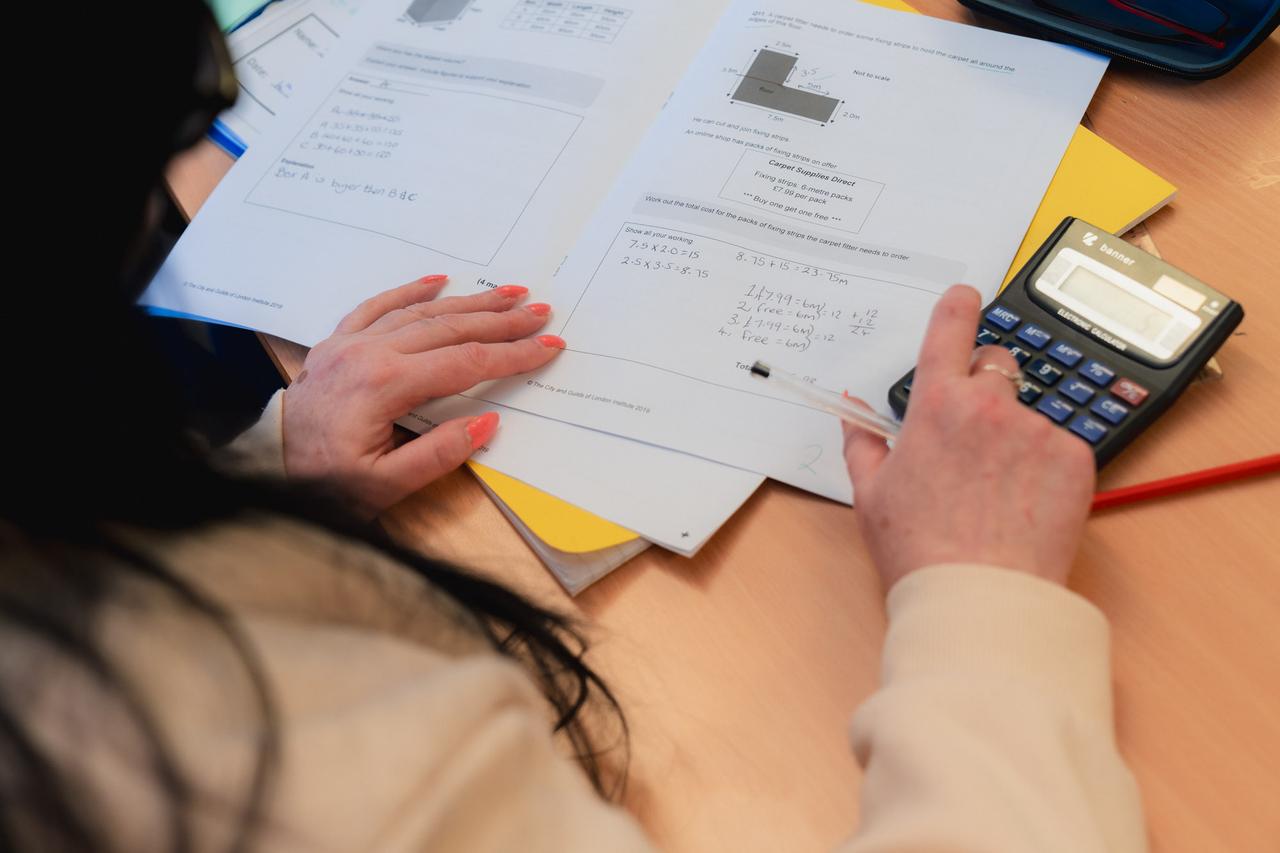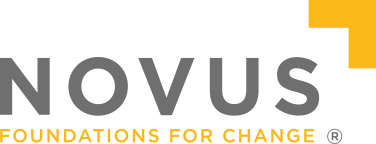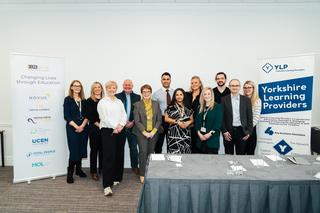Maths in Prisons: Boosting Skills and Reducing Reoffending
Adult Provision English & Maths

The power of numeracy in rehabilitation
For many people in prison, maths was a subject they struggled with long before entering custody. Low numeracy skills can make everyday life challenging, from budgeting and understanding payslips to reading timetables and filling out forms. In prison, these gaps can feel even wider.
Yet when learners are given the chance to build their confidence with numbers, they often discover a new sense of purpose, achievement and possibility. At Novus, we believe maths is not just about equations or percentages. It is about problem solving, communication and confidence, key skills that support rehabilitation and reintegration into society.
The need for maths education in prisons
Recent data from the UK Ministry of Justice shows that between April 2024 and March 2025, there were 48,249 initial maths assessments carried out in public prisons in England, a 7% increase on the previous year. Of those, 69% were at Entry Level 1 to 3, meaning that most learners started below a GCSE standard.
This highlights a continuing challenge. Many people in prison missed out on education earlier in life. Around 46% of prisoners have no maths qualification at all, and over half have a learning difficulty that can make traditional classroom learning harder. By addressing these barriers, prison education helps people develop not only their maths skills but also their confidence, independence and sense of achievement.
Education and reoffending: what the research says
There is a clear link between learning and rehabilitation. According to the College of Policing’s Crime Reduction Toolkit, people who take part in prison education programmes are around 13% less likely to reoffend after release.
A 2025 international review published in Frontiers in Education also found that education can transform self-identity, improve communication and build social capital, all vital factors in successful reintegration.
When maths is part of a wider educational journey, it helps learners develop transferable skills such as problem solving and logical thinking, which are valued by employers and essential in everyday life.
How Novus delivers meaningful maths learning
Novus delivers tailored maths programmes in prisons across England and Wales. Our approach focuses on practical application, real-life problem solving and individual support. We know that many learners have had negative experiences with education in the past, so we prioritise small steps, encouragement and relevance.
Learners are supported to understand how maths connects to real-world scenarios such as budgeting, planning and workplace safety, build confidence through achievable goals and positive reinforcement, develop digital numeracy alongside functional maths skills, and gain accredited qualifications that improve employability upon release. For those with learning difficulties or neurodiversity, our teams work closely with specialist staff to ensure teaching is inclusive and accessible.
Beyond numbers: building confidence and change
Maths learning in prison often becomes a catalyst for wider change. Learners report feeling more confident, more capable and more optimistic about their future. Many go on to study further qualifications or secure meaningful work after release. Improved numeracy supports better decision making, financial stability and communication, all of which reduce the risk of reoffending. By giving learners the tools to understand and apply maths, we are helping them take control of their lives and contribute positively to their communities.
Maths as a foundation for rehabilitation
Rehabilitation is not only about changing behaviour. It is about rebuilding self-worth, providing skills and creating pathways to opportunity. Numeracy plays a vital role in that journey. Through education, individuals gain the confidence to face challenges, manage responsibilities and imagine a different future. At Novus, we see these transformations every day and we remain committed to ensuring that maths education continues to be a cornerstone of rehabilitation in the prison system.
Learn more: Discover more about how Novus delivers education that changes lives at www.novus.ac.uk/news


